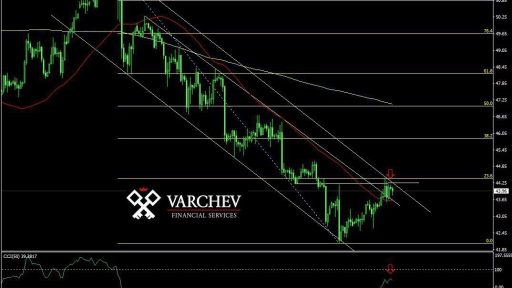- Home
- >
- Commodities Daily Forecasts
- >
- Global oil exports spell trouble for crude prices

Global oil exports spell trouble for crude prices

After a brief drop in Saudi oil exports in April and May, June crude loadings appear to be back on the rise, according to tanker tracking firm ClipperData.
That could spell trouble for the oil market, which is eager to see OPEC production cuts translate into fewer barrels being sent to fill up storage tanks overseas. Throughout the first six months of the output cut deal, exports have remained fairly robust.
In April, top exporter Saudi Arabia finally saw a sharp drop in the amount of oil it loaded on to tankers compared with October, the reference level for OPEC's output cut deal. The good news is that decline showed up in lower U.S. crude imports from the kingdom this month.
But the bad news is just one month after OPEC agreed to extend its output deal through March, ClipperData reports the Saudis and other OPEC members are loading up tankers once again.
Recent production increases in Nigeria and Libya, two OPEC members exempt from cutting output, are also starting to show up in loadings, the data show.
For now, it appears that many of those barrels are headed for Asia, Smith said. By shipping less oil to the United States, Saudi Arabia could help manage market sentiment, he added.
Weekly U.S. stockpile figures are among the most transparent and closely watched inventory data. If traders see those levels dropping, oil prices could rise on the view that OPEC is finally achieving its goal: driving down global stockpiles to the five-year average.
U.S. crude prices collapsed to a 10-month low just above $42 a barrel last week, before rebounding through Tuesday as traders covered short positions.
Source: Bloomberg Pro Terminal
Comment:
The oil price is in a strong downward trend since May 25 and is currently adjusting to levels of horizontal resistance coinciding with 23.6% Fibonacci retracement. Our expectations are that the price of oil will remain at levels between $ 44 and $ 42 with a high probability of decline due to rising output both in the United States and OPEC member countries. Another negative factor that will continue to be influenced is the growing US manufacturing of shale industry, which is using increasingly advanced technology that allows profit even at low prices.
Jr Trader Petar Milanov
 Varchev Traders
Varchev Traders Read more:
If you think, we can improve that section,
please comment. Your oppinion is imortant for us.














